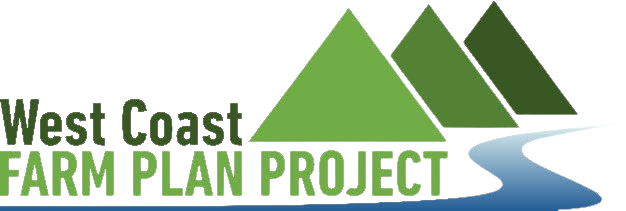The rollout of Freshwater Farm Plans began on the West Coast in February 2024. Workshops and online resources are available through the Farm Plan Project to help farmers through the process and the only cost to farmers in attending these sessions will be their time
Freshwater Farm Plan Guidance for Farmers
-
What is a freshwater farm plan?
Freshwater farms plans are a new regulated farm planning system for farmers and growers, introduced as part of the Government’s Essential Freshwater package.
Your freshwater farm plan must:
1. Identify the environmental risks of your farming activities to freshwater and freshwater environments
2. Set out the actions you already take or will take to avoid, remedy, or mitigate those risks
Your farm plan must set a timeframe for each action clearly stating when they will be implemented.
The actions captured in a freshwater farm plan will depend on the farm’s location and local environment.
Your farm plan will need to include information on:
• your catchment – including values, ecosystem and community outcomes
• risk identification and assessment – including the identification of critical source areas
• actions to mitigate risks – including plans to exclude stock from waterways, protect wetlands, and manage critical source areas and intensive winter grazing
• how you will meet regulatory requirements, including the synthetic nitrogen cap, intensive winter grazing rules, stock holding, wetland, and stock exclusion rules.
The Regional Council will provide the relevant information the council has about your catchment, referred to as "catchment context, challenges and values" to support you to prepare your farm plan.
-
Who will need a freshwater farm plan?
All farms with 20 hectares or more in arable, pastoral or combined farming use, or properties with 5 hectares or more in horticultural use will require a freshwater farm plan.
All freshwater farm plans will need to be certified and audited.
-
What if I already have a farm plan?
Your existing farm plan will need to be updated to fit the requirements of the Freshwater Farm Plan Regulations. Once farm plans have been activated in your area you will be able to access your catchment context, challenges and values information and can talk to your industry provider about updating your plan to meet the new requirements.
-
Can I complete a farm plan on my own or do I need to pay a consultant?
Yes, you can choose to develop your own farm plan and guidance will be available to support farmers to do this. The West Coast Farm Plan Project, Regional Council and industry partners are working together to provide guidance and support to the farming communities on the West Coast.
Many farmers will still choose to engage rural professionals to support them to create their farm plan, particularly where the farm system is complex.
A certifier must be engaged to certify the plan and will be responsible for assessing whether the identified actions are appropriate to manage the identified risk. When identifying actions, the farm operator and certifier should consider what is fair and reasonable.
Auditors will be assessing whether a farm operator has or has not implemented the actions as set out in the action plan, including within the timeframes set in the action plan. Actions need to be clear and measurable, and the farm operator must document evidence show that actions have been or are being implemented as intended.
-
Where can I find help to develop my farm plan and how much will it all cost?
The cost of developing a plan will vary for each farm and depend on whether the farmer develops all or part of their farm plan or engages a professional to complete the plan for them. A recent project by Ministry for Environment to trial completing freshwater farm plans on the West Coast indicated the likely time for a rural professional to develop a farm plan will be approximately 12-15 hours for an average farm.
Certifiers and auditors will set their own costs, and these will also need to be covered by the farmer.
The West Coast Farm Plan Project and project partners are committed to making the process for developing farm plans as easy and accessible as possible. Workshops and online resources will be available through the Farm Plan Project to help farmers through the process and the only cost to farmers in attending these sessions will be their time.
-
Why do I need to include Te Ao Māori perspectives in my farm plan?
The world view of Māori (Te Ao Māori) acknowledges the interconnectedness and interrelationships of all things, living and non-living, and Te Ao Māori principles are guided by how our actions will affect the wellbeing of future generations. By taking these principles into account when working within the environment, better outcomes for our future generations are more assured. This approach is well aligned to good farming practices and to the way we farm in our region, where we need to carefully consider what we do and how we do it to get the right returns.
Considering your catchment context information as you develop your farm plan will help you to develop a farm plan that protects the unique values of your farm and wider catchment area. Farmers do not need to gather this information, it will be provided by the Regional Council as the rollout progresses, following council engagement with mana whenua. The catchment context information will be presented in a way that supports farmers to consider it as part of their risk assessment.
-
How will certifiers and auditors be chosen?
Certifiers and auditors will need to meet a set of criteria set out in the regulations and to complete national and regional training. The Regional Council will appoint certifiers and auditors who can demonstrate that they meet these requirements. The council will publish a list of certifiers and auditors on their website.
-
Will the Regional Council employ certifiers and auditors?
No. The council is responsible for setting up the regional structure for freshwater farm plans and providing regionally specific training for certifiers and auditors.
-
When do I need to get my plan re-certified?
You will need to get your plan re-certified every five years.
The farm plan will also need to be re-certified within 12 months if there are significant changes in farming activities, if more land is added to the farm that requires different catchment information, or if the farm operator changes and does not adopt the existing plan.
Part of the action selection and certification processes is to consider that all actions are physically and financially achievable for that farm within the assigned timeframe. If the circumstances of the farm are drastically altered during the certification period, the farmer can alter their plan and seek recertification based on their changed circumstances.
-
When do I need to get my plan audited?
You must arrange for an audit within 12 months of getting your farm plan certified or re-certified. If you have taken over a farm and adopted the existing certified plan from the previous owner, you must arrange for an audit within 12 months of taking over the farm.
The auditor will assign an audit grade and this grade will determine the timeframe for your next audit.
The auditor will be required to audit against the actions included in the certified action plan, it is not their role to determine if the actions are fit for purpose (including fair and reasonable).
-
Can the person who developed or certified my plan audit it?
No, an auditor cannot audit a freshwater farm plan if they have given advice in the preparation of the plan in the last two years or if they certified the plan.
-
Will my freshwater farm plan remove the need for a winter grazing resource consent?
In some cases your farm plan may operate as an alternative to requiring a resource consent. Your farm plan would need to demonstrate how any adverse effects caused by winter grazing are managed and how these effects are no greater that those allowed for under the permitted activity conditions.
-
Will my submitted farm plan be accessible to the public?
No, your farm data will be kept securely, and any national level reporting will not identify individual farms.
-
Where can I find out more?
You can find more information on Freshwater Farm Plans on the Ministry of Environment Freshwater Farm page here
Freshwater farm plans | Ministry for the Environment
Still have a question?
You are welcome to drop us a line or give us a call with any queries you may have
Phone: 0276680013
Email: lyn@farmplanning.nz

